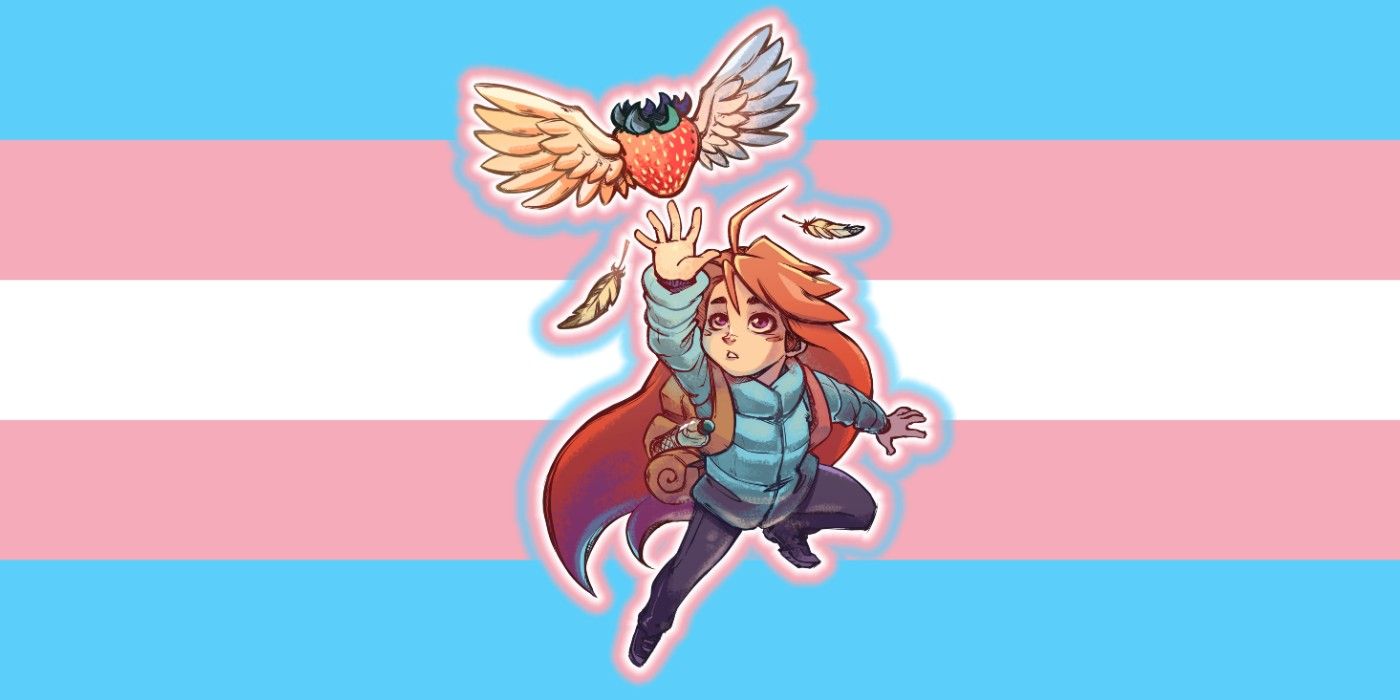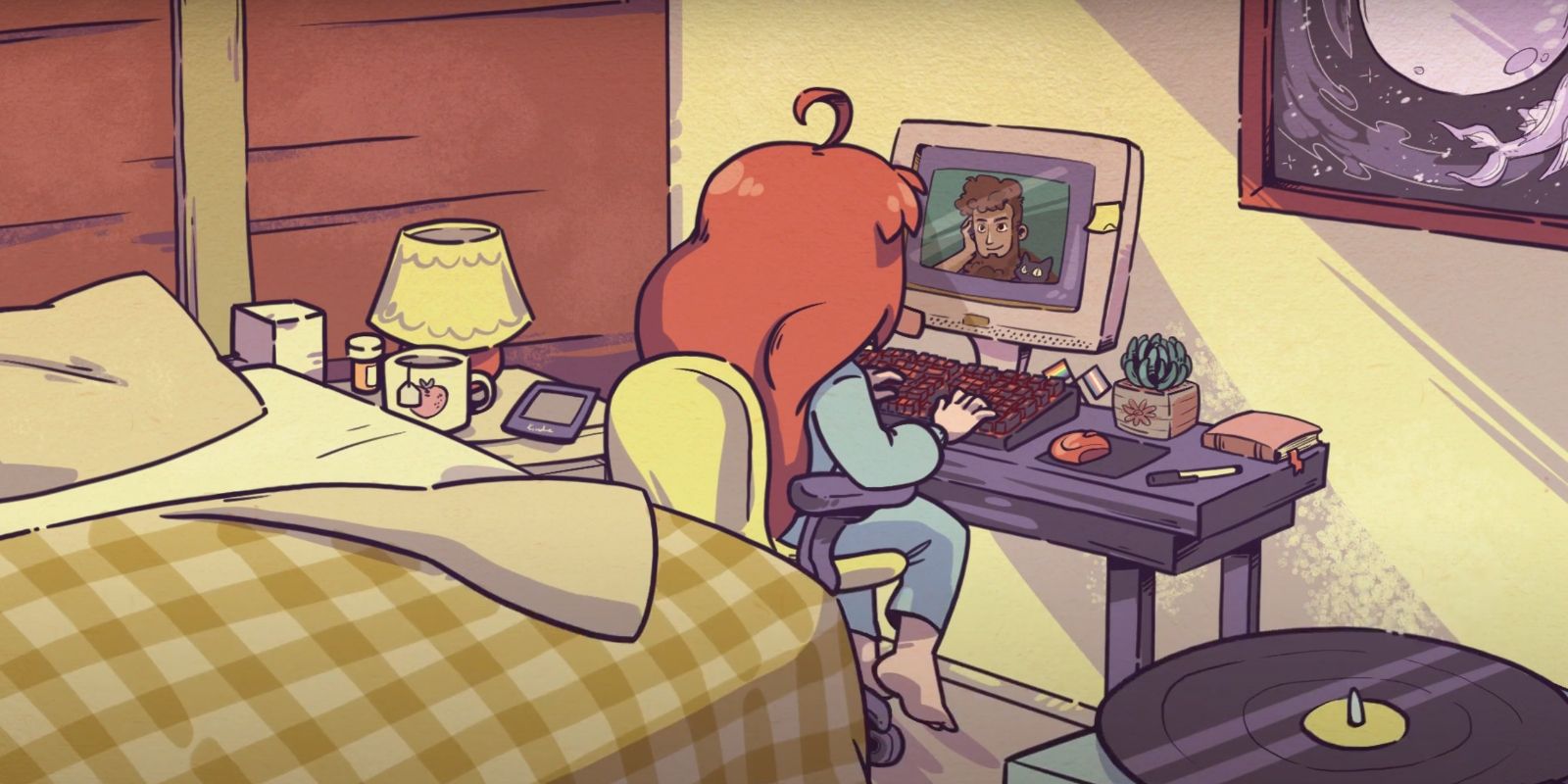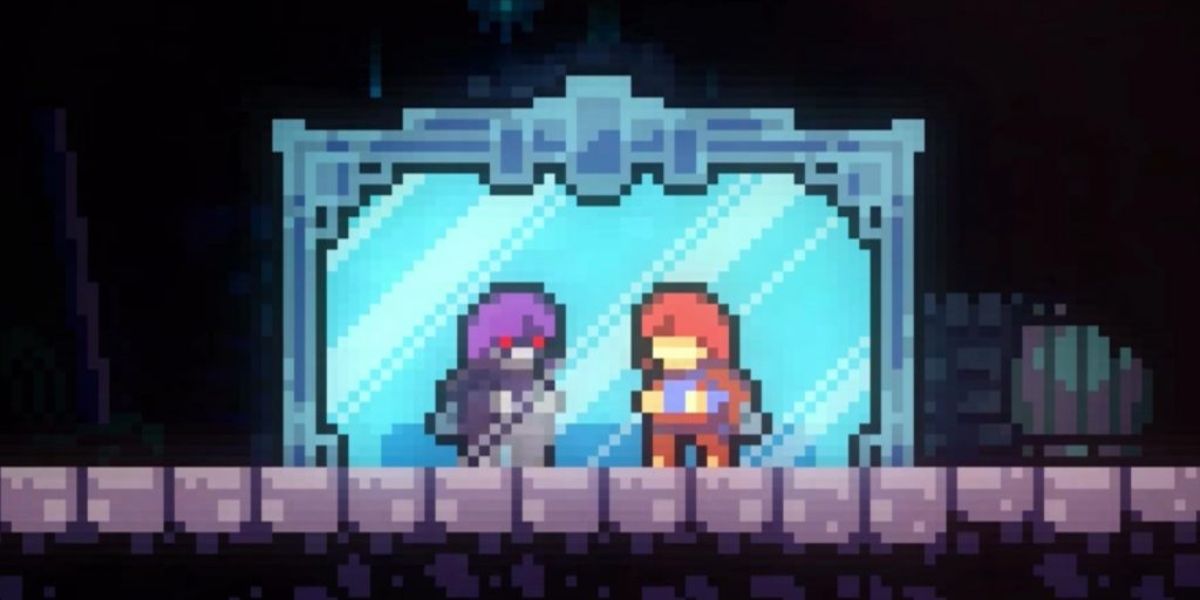Since its release in 2018, Celeste has been considered one of the best indie games of the generation. In it, players control Madeline, a young girl climbing up a mountain while avoiding obstacles. But unlike most other games in the platforming genre, Extremely OK Games' title weaves a powerful story about living with mental illness and overcoming the challenges that presents into its gameplay mechanics.
Madeline's story has resonated with many players, but the character's gender identity has also been a point of speculation since the launch of "Farewell" in September 2019. In the ending cutscene of the game's final chapter, there is a shot of Madeline's desk that features rainbow and transgender pride flags, leading fans to question whether Madeline is herself a trans girl. Now, the game's developer, Maddy Thorson, has confirmed that to be canon.
In a Medium post entitled "Is Madeline Canonically Trans?" Thorson makes it clear that she is. Thorson says that, while they didn't know Madeline was trans when development started, "I now know that we both are," referencing their own journey with gender identity (Thorson came out as non-binary in 2019).
Acknowledging the criticism Extremely OK Games has received for not making this fact explicit in Celeste itself, Thorson explains that it was never the studio's intention to hide Madeline's transness. They did have conversations regarding how to incorporate it in a manner that's authentic to the game and the character without turning it into a gimmick or spectacle.
Madeline being confirmed as a trans girl is important not only because representation matters (which it absolutely does), but because of what Celeste itself represents. So many players have already identified with Madeline's anxiety and her struggle with who she sees in the mirror.
Throughout the game, Madeline has to contend with her dark reflection, Badeline, who tries to stop her from climbing up the mountain. At first, Madeline pushes away her reflection, but after realizing that Badeline might be just as scared as she is, Madeline apologizes. The two merge, and it is only then that they become strong enough to make it up the mountain together.
While Celeste's themes of overcoming adversity and reconciling with one's "dark side" are universal, they are particularly resonant for the trans community. Refreshingly (though this is in part due to Madeline not being written specifically as trans from the start), neither Madeline nor Badeline is depicted as more or less "feminine," placing the focus on the mental and emotional struggle of the character rather than the physical aspects of the trans experience that are too often the sole focus.
In general, 2020 has been a step in the right direction for trans characters in gaming. One of the year's biggest games, The Last of Us Part II, features a trans boy as a significant secondary character, and Dontnod's Tell Me Why features the first playable trans protagonist from a major studio. These other games are more explicit in regards to their trans characters, but while all these games may have their flaws in how they execute representation, there is a place for and a significance to all of them.
Celeste was, as Thorson says, "unknowingly written from a trans perspective." And though the game centers on a trans character, it is not strictly a story about or for trans people. It is both important for trans people to see themselves in media and for cisgender people to understand that they can learn from trans stories. The fact that this game and its narrative have already moved so many people is an important reminder that Celeste is, above all else, a human story, and trans stories are human stories.



